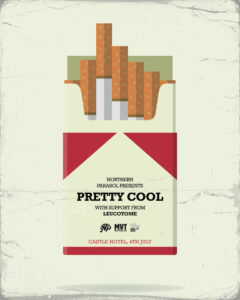
Come along to The Castle Hotel at 7pm to listen to Julian’s talk. Put your feet up and learn what he has to share…
Name of speaker:
Julian Edge
Title of talk:
The Arrogance and the Empathy
(An everyday introduction to non-judgmental language)
Bullet points of what you would like to cover:
- Who said this? “I’ve got strong convictions. That does go with the ability to listen, to empathise, to reach out to people. The moment you become arrogant, you stop listening, and when you stop listening, you don’t understand what’s actually happening.”
- A conscious change in how we listen to others could enrich our interactions and our society.
- A style of understanding based on respect, empathy and sincerity.
- A set of skills to try out.
- Please note that this is an interactive workshop rather than a talk. It will only work if you take part.
A (few) paragraph(s) on the subject you you’ve chosen to talk about and written through a personal narrative:
I worked for over 40 years as a teacher and teacher-educator. Over the last 25 of those years, I became more and more impressed by the educational work of Carl Rogers. Rogers believed that we all have a natural tendency to develop in positive ways, a process that he called, ‘self-actualisation.’ This tendency can be blocked and it can be facilitated. An important influence in the facilitation of such development is how a person is listened to. If they feel that they can express themselves fully without being judged, they have an opportunity to develop beyond their current position.
Since retiring from full-time employment in 2011, I have retrained as a counsellor, using for the most part Rogers’ ‘person-centred’ approach to therapy. Unsurprisingly, the underlying principle is the same, that people can be helped in their natural tendency to become what Rogers called ‘a fully-functioning person’ by the way that they feel themselves to be understood. Another area in which Rogers worked was conflict-resolution. Once again, the key principle was that the effort to understand the other was central. If, instead of putting all my energies into trying to defeat you, I put them into trying to understand you, and you do the same for me, we have a greater chance of avoiding conflict and finding an acceptable compromise.
These are three areas, then, education, counselling and conflict resolution, in which non-judgmental understanding can help individual development and social well-being. In this short workshop, I want you to get a taste of this kind of interaction and I want you to consider how some related changes in the way we interact with others might help us change for the better the texture of the society that we build every day. So, outside any specific field of action, taking the judgmental out of our everyday lives, reducing the arrogance and increasing the empathy, might help us all towards a better understanding of what is going on, and help us develop more of our potential to become the person that we want to be.




